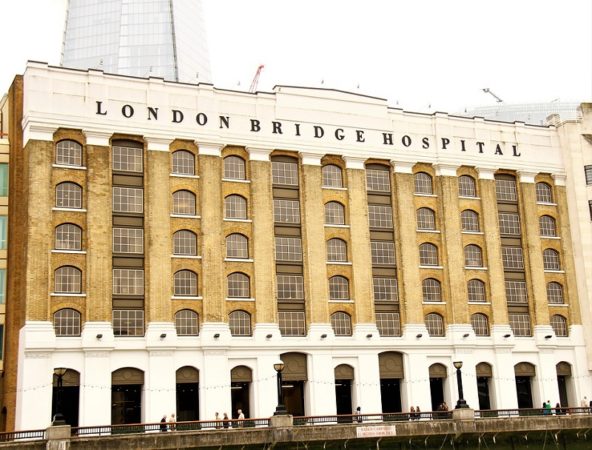
Millions of Australians use the healthcare system every day. A visit to a doctor’s office, pharmacy, or hospital are all examples of health promotion and disease prevention programs that may be implemented in schools, workplaces, and communities. Providing safe, effective, accessible, and appropriate treatment and other services is a crucial duty of the country’s healthcare system.
Many different organizations, including government and non-government agencies, are involved in Australia’s healthcare system, which includes a wide spectrum of healthcare providers. They work together to satisfy the physical and mental health requirements of Australian citizens.
However, when you relocate abroad, you might not be able to rely on the Australian healthcare system anymore.
One of your major considerations when you relocate overseas is how you will get healthcare in your new area. This is especially important if you are moving with a young family or are a retiree who is coping with an existing medical issue.
Let’s take a look at health insurance options for Australian citizens who are living overseas.
This article will take approximately 22 minutes to read. Don't have the time right now? No worries. You can email the ad-free version of the article to yourself and read it later!
Disclaimer: This article may include links to products or services offered by ExpatDen’s partners, which give us commissions when you click on them. Although this may influence how they appear in the text, we only recommend solutions that we would use in your situation. Read more in our Advertising Disclosure.
Contents
Before Moving Overseas
When it comes to health insurance for Australian citizens, there are certain factors you should always keep in mind.
You should take into account the healthcare system of the nation you’re contemplating to migrate, as well as how you receive healthcare in your current location.
If you need to move from time to time while overseas, you may need to get insurance that comes with worldwide medical coverage.
In many countries, you may need to have proper health insurance in order to get a visa.
Let’s take a closer look at each point in detail.
Destination Country
The destination country where you are planning to relocate can have a significant impact on your health insurance option.
For example, if you are going to relocate to a country with a good public health system such as Spain or Canada, you might not need to have private insurance.

In case you are moving to a country with affordable healthcare such as Costa Rica or Thailand, going without health insurance can also be an option.
Please note that because of the COVID-19 pandemic, many countries will require you to have insurance with COVID-19 coverage for the entire duration of your stay in that country.
Visa
You need to stay up-to-date with the visa regulations of the country where you plan to move. In some cases, you may be obliged to get health insurance as a requirement of your visa to relocate overseas.
For example, if you plan to get a retiree visa in Thailand, you need to get health insurance. But if you have other types of Thailand visa, you may not be required to have one.
How Long You Plan to Live Abroad
The duration of time you are planning to live abroad affects the type of health insurance you’ll be required to have.
For example, if you are moving out of Australia temporarily, you can keep your Medicare active, so that you can rely on this public health insurance system when you return.
Alternatively, if you’re thinking about moving out permanently, you can totally disregard Medicare and get other types of health insurance instead.
Do You Plan to Move to Several Countries?
Different types of health insurance have different types of coverage.
Some may only cover your health expenses in a single country. Some plans may cover several countries that are in the same continent. And some plans may give you worldwide coverage.
If you are planning to move to several countries, it might be a good idea to get a health insurance plan that provides coverage in those countries. This way, you don’t need to change plans every time you move to a new country.
It is generally not a good idea to keep changing your health insurance plan since your new plan might not cover diseases that you might get along the way, as it may be considered a preexisting condition.
Do You Relocate Alone or With Your Family?
If you are relocating with your family, it can be a good idea to get group health insurance instead. It is cheaper than buying an individual plan for each family member.
The group health insurance usually comes with a 10%-15% discount, but your entire family will be covered under the same health insurance plan.
Do You Have Any Preexisting Condition?
In a health insurance plan, preexisting conditions basically refer to any health condition/disease that you already have prior to getting a health insurance, and will therefore not be covered by the insurance.
For example, if you are currently suffering from a cardiovascular disease and are about to get health insurance in order to pay for the treatment cost, chances are that your health insurance company won’t pay for it.
Our advice: if you already have a disease that can be considered a preexisting condition, you should inform your health insurance company in advance before you make any decision.
As far as we know, public health insurance in every country covers preexisting conditions, whereas private insurance won’t. And to our knowledge, it is only in Dubai where private insurance covers preexisting conditions.
Advantages of Having an Insurance
Having health insurance may be optional if you’re moving to certain countries. In any case, having health insurance is undoubtedly beneficial, particularly in terms of the following:
Finance
Some people say that health insurance helps you save money, but this statement doesn’t apply to everyone and all situations. It’s more accurate to say that having health insurance gives you greater control over your medical budget, mainly because you know exactly how much you need to pay per year.
This means that you won’t have to break the bank if you need medical care requiring a huge amount of money. That said, you still need to regularly pay for your health insurance even if you do not make a single claim within any given year.
Peace of Mind
Health Insurance ensures that at least a portion of your medical bills will be covered, which should alleviate your concerns about your ability to pay your medical bills.
Many people decide to get health insurance mainly for this reason. They like the peace of mind that comes from knowing that they will still be able to afford healthcare without having to resort to drastic measures like opening a case on GoFundMe to ask for help, should something happen to them.
Better Health
Health insurance can indirectly improve your health.
When you have one, you tend to be more decisive about going to a hospital when you get sick without having to worry too much about how much you’ll need to pay.
Going to a hospital at the earliest possible time means you will receive treatment sooner and, therefore, recover faster.
Some health insurance plans also cover routine health check-ups.
Treatment Quality
While you can pay out of your pocket and get the same quality of treatment as those who have health insurance, you might opt not to go to a premium hospital if you don’t have health insurance out of consideration for your budget.
Instead, you might go to a more affordable hospital which may have longer wait times and where the treatment quality may not be as good as in premium hospitals.
If you have health insurance, you tend to be more inclined to visit the best possible hospital because you’re not too worried about the cost.
Options
There are four main types of health insurance available for Australian citizens living overseas.
Medicare
Although Medicare comes with limited coverage for Australians who are living abroad, it’s still a good option for Australian citizens who moved to certain countries where this insurance is honored.
Coverage
As it is a public insurance in Australia, Medicare provides health coverage only within Australia and won’t cover your medical expenses if you get treatment abroad.
Exceptions apply in 11 countries that have the Reciprocal Health Care Agreement (RHCA) with Australia, including Belgium, Finland, Italy, Malta, the Netherlands, New Zealand, Norway, Ireland, Slovenia, Sweden, and the UK.
Nevertheless, coverage provided under the RHCA is still quite limited. For one, they will provide coverage only for conditions that require urgent medical care.
That means that if you have flu, your insurance under RHCA won’t provide coverage. On the other hand, if you get into an accident and need an operation, RHCA will cover your treatment.

The coverage amount and period are different in every country. For example, if you are living in the UK, you might need to pay only for medications. And you will get coverage during your first six months there.
If you live in New Zealand, you will get coverage during the first two years for hospital care and maternity services.
If you are in Ukraine, you need to pay around 20%–40% out of your pocket for medical costs you incur. You get coverage during your first year.
In other words, Medicare coverage for Aussie citizens living abroad varies across countries, and is rather limited. If you must use it, you need to fly back to Australia to get better treatment coverage.
However, if you are a non-tax resident, you might not be able to access Medicare anymore once you leave Australia.
Although Australian citizens who currently live abroad can still use Medicare for their treatment in Australia in the first five years after they’ve left the country, this exact information was recently removed from the Medicare website.
As of this writing, we are not sure whether Australian citizens living abroad can still use Medicare to get treatment in Australia. We will update this article as soon as we get confirmation from Medicare.
Keeping Medicare Active
Some people decide to keep their Medicare active even while living abroad. This is to make sure that they can fly back to Australia and use Medicare benefits for expensive treatments.
To keep Medicare active, you need to be a tax resident in Australia. This entails NOT setting up a permanent home abroad and continuing to pay Australian income tax.
If you go for this option, know that you will have to keep paying Australian income tax and keep paying Medicare although you are living abroad — this is not practical if you have no plans to return to Australia.
Can I Apply for Medicare Again After Leaving Australia?
If you leave Australia and will be away for more than five years, you can reapply for Medicare by sending your passport and two proofs of address showing that you are living in Australia to the Medicare Enrolment Services. This can be done by mail or email.
International Insurance
International insurance, commonly referred to as expat health insurance, is designed specifically for expats and is a highly popular option for expats from all over the world, not just Australian expats.
Coverage
When choosing an international health insurance coverage, you usually have to choose based on the following factors:
- Area of coverage
- Medical coverage
- Coverage limit
Area of Coverage
Some international health insurance plans offer worldwide health coverage. This means that you can visit any hospital in the world and have your insurance pay for it.
Some plans may give you health coverage in specific regions only. For example, with ACS Health In Asia, you can visit hospitals in most countries in South East Asia except Singapore.
Usually, a plan with more areas of coverage are more expensive. In addition, most plans will not provide coverage in the United States unless you pay extra.
Note that the area of coverage of an international insurance plan may not cover your home country, which in this case is Australia. Some plans may only allow you to visit a hospital in Australia if you go there for a short visit.
Medical Coverage
The medical coverage of international insurance is comprehensive and should cover anything you need as an expat.
With international insurance, you can visit a private hospital and have the insurance pay for it.
This gives you greater freedom in choosing a doctor in a private hospital. One of the main advantages of going to a private hospital is that the majority of physicians, nurses, and staff can speak English well.
Waiting time in private hospitals is shorter too. The processes involved in visiting a private hospital are also smoother compared to going to a public hospital in many countries. Additionally, international insurance gives you the flexibility and opportunity to obtain treatment anywhere within the coverage territory.
Here’s a list of coverage that comes with basic international insurance plans.
- In-patient treatment
- Surgery
- Scans
- Cancer treatment
- Organ transplant
- Medications
- Semi-private hospital rooms
- Emergency treatment
- Medical evacuation
- Assistance in the event of an emergency, 24 hours a day and 7 days a week
- Repatriation
Here’s a list of additional coverage in international health insurance policies. These add-ons are optional and require an additional premium to be paid on top of the base plan.
- Private hospital rooms
- Out-patient treatment
- Maternity
- Dental and optical coverage
- Hospital expense for your family members who take care of you during hospitalization
Please note that different insurance plans have different coverage. For example, some providers may include out-patient treatment on their basic plan.

Some basic plans may also include as a benefit non-emergency treatment such as general physician visits.
Because of the COVID-19 pandemic, insurance companies have been incorporating a telemedical service into their plans as an extra perk. This means that you can have a call with a physician directly without having to go to a hospital.
Choosing a plan and coverage largely depends on your destination country. For example, if you are in a country like Costa Rica, you might not need out-patient treatment to be included in your insurance as it’s quite affordable anyway.
However, there are scenarios where it’s imperative to include a medical evacuation in the coverage. For example, if you live in Cambodia, a medical evacuation can be necessary.
If your condition requires a prompt return to Australia for treatment, medical evacuation from nearby countries like Singapore, Malaysia, and Indonesia can range from AUD 15,000 to AUD 95,000.
Premium
The insurance company determines its premium prices based on a number of criteria, including your plan tier selection. They usually have three primary plan tiers: Silver, Gold, and Platinum, each with a different premium and coverage level.
Apart from tier selection, the cost of the plan is also determined by the coverage region selected and your age.
Some international health insurance plans may be purchased for as low as AUD 100 per month. The average monthly cost of a plan is AUD 350, although the price might vary significantly depending on your plan, age, citizenship, and location. The cost for the majority of consumers is between AUD 4,000 and AUD 6,000 each year.
Premiums can be paid monthly, quarterly, or yearly. Annual payments might give you a 5% discount on the overall cost.
You may decrease your premium by choosing a deductible or a co-pay. Please note that while co-pay and deductible can decrease your insurance premium, you need to pay a certain amount out of your pocket when making a claim.
Who Should Get International Insurance?
Getting an international insurance is a good idea for Australian expats who plan to relocate for more than a year, whether it is to work, do business, study, or retire.
It is especially recommended for those who travel regularly or have a plan to move to another country again in the future. This way, they get to keep the same insurance plan.
Who Can Apply for International Health Insurance?
Expatriate Medical and Emergency Evacuation Expense insurance is designed to cover the medical and evacuation expenditures of expats.
The coverage includes both hospital and auxiliary expenses. Individuals, couples, and families are all welcome to apply.
When to Apply
You may apply for international health insurance 45 days prior to the intended start date.
Applying prior to the end of the specified time, or having your start date postponed, may require you to give an updated medical information from your healthcare provider.
Additionally, you may be required to submit a statement of health certifying that no new medical issues have developed since your first application.
Can I apply if I have preexisting conditions?
Yes, but only after a thorough evaluation of your medical history. If you sought guidance or noticed symptoms prior to the commencement date of your plan, regardless of whether you were diagnosed, insurance providers may elect to add specific exclusions to your plan.
You will be required to fill out the medical questionnaire completely and accurately when you apply.
Preexisting conditions will be covered similar to other illnesses. Typically, this is the type of situation where a minor preexisting ailment, such as allergies, exists.

The insurance may cover your preexisting condition, but you may be charged a “rate increase” to pay the increased expenses connected with the condition, or you may be subject to specified restrictions on the costs associated with the condition.
Please note that different insurance companies have different regulations on how they handle preexisting conditions.
Local Private Insurance
Other than international insurance, another option is to get private health insurance from a local insurance company, especially if you prefer to visit private hospitals.
Health insurance coverage from local private insurance providers works differently across countries.
For example, in Thailand, local insurance plans do not come with annual limits. Instead, they give you a specific limit on each procedure.
Normally, private insurance coverage is not as comprehensive as international insurance. You will also be limited to getting treatment in that country alone.
The exception is the United Arab Emirates where local insurance gives you preexisting conditions coverage.
On the other hand, local private insurance is usually cheaper, which can be good for those who tend to stay in that country for a very long time without immediate plans to move out.
Another good thing about local private insurance is that local insurance companies tend to have a direct billing system set up with local hospitals. This means, the insurance company will pay directly to a hospital.
In this case, you do not need to pay for your medical expenses in advance and make a claim later.
However, depending on the country you are living in, local insurance staff might not be able to speak English well. They may provide a system and service different from what you are accustomed to in Australia.
Public Insurance
Public insurance coverage is quite similar across countries. You get full health coverage, including preexisting conditions, without having to pay anything out of pocket.
However, the quality of treatment vastly differs across countries.
In countries like the United Kingdom, Spain, Germany, and Canada, public insurance and public health systems are really good. You can fully rely on them without having to go to private hospitals. In these countries, expats still do get private health insurance, mainly to get a shorter waiting time and better service at private hospitals.
In countries like Thailand and Mexico, although the public health system is good, public hospitals tend to be overcrowded and have a really long waiting time.
Public insurance in each country also works varies. In some countries, you need to apply for it yourself. In some countries, you are automatically enrolled in public health insurance in the form of social security.
Also note that in most countries, public insurance is usually much cheaper than private insurance. It also covers preexisting conditions. Moreover, in most countries, you will be able to visit certain hospitals only if they’re specified in the public insurance plan.
Public health insurance in most countries also have the same problem regarding waiting time, which tends to be much longer than that of a private healthcare system.
When it comes to treatment quality, there are vast differences in every country. To help you decide whether or not you want to rely on the public healthcare system, you should visit a local public hospital in your area, and see for yourself if you would want to get treatment there.
Travel Insurance
Travel insurance can be your alternative insurance option since it also comes with medical coverage.
However, travel insurance only works on your first year after leaving Australia. Many travel insurance providers, including World Nomads and ACS, only allow Australian citizens to buy their travel insurance for a maximum of one year.
While it’s cheaper than health insurance, the health coverage is not as comprehensive as that of an actual health insurance plan. Medical coverage from travel insurance may only cover diseases you might have from traveling but not cover chronic disease.
Therefore, travel insurance should only be a temporary solution while you apply for a proper health insurance. You shouldn’t rely on it for too long.
What Types of Insurance Should I Get?
To help you decide on what kind of health insurance you should have as an Australian expat, you should go back to our very first section in this article and ask yourself those questions.
To summarize:
- You shouldn’t expect Medicare when living abroad. However, you would want to keep it active, so that you can fly back to Australia and get treatment for expensive procedures.
- International insurance is generally a good choice. It caters to expats and comes with coverage that expats would need.
- Local private insurance can be a good idea if you plan to stay in a certain foreign country for a long time.
- Public insurance can be a good option in countries with a good public health system.
- Travel insurance should be your temporary option while you are waiting for an actual health insurance plan.
Please note that there is no perfect health insurance plan out there that works best for everyone. Also, each person has different requirements.
You might want to talk to a broker such as International Citizen and ask them for a recommendation.
Now, on to You
We hope that this article answers everything you need to know about health insurance for Australian citizens living abroad.
If you have additional questions, please feel free to ask them in the comments section below. If you have any alternative health insurance options for Australian citizens, please feel free to let us and other fellow expats know.







